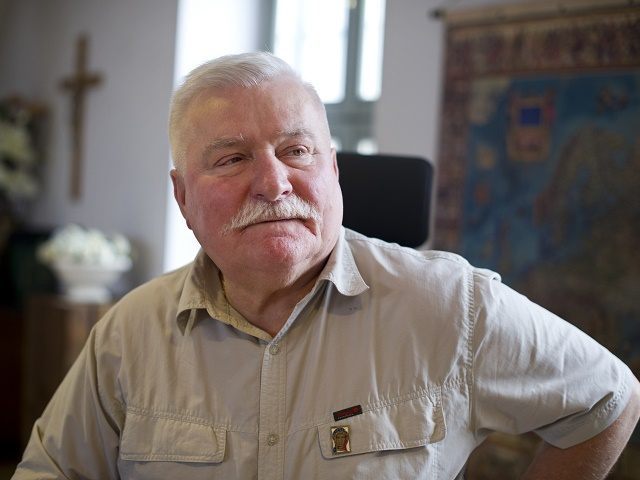Solidarity freedom hero Lech Walesa admitted Friday he had “made a mistake”, but flatly denied he was ever a paid secret agent who collaborated with Poland’s communist regime amid fresh allegation triggered by newly-found files.
Poland’s first post-communist president — who was cleared of suspicion by a special vetting court in 2000 — did not elaborate on what his mistake was — but pointed to a mystery person who “should reveal the truth” about the past.
“They didn’t break me in 1970 and I didn’t cooperate with the SB (secret police), I never took money, and I never ratted on anyone either verbally or in writing,” the 72-year-old Nobel Peace laureate wrote on his blog.
“I made a mistake, but not this (collaboration), and I vowed not to reveal it, certainly not yet, not now,” he said, enigmatically.
But he added: “There is a person — a perpetrator, who is still alive who should reveal the truth and I’m counting on it. I had a soft heart.”
The Solidarity leader is currently on a trip to Venezuela and the United States.
Poland’s IPN institute responsible for prosecuting communist-era crimes on Thursday revealed a newly-found 1970s secret police file showing Walesa was a paid collaborator codenamed “Bolek”.
Experts have consistently raised doubts about the credibility of communist-era secret police files, arguing they could easily have been manufactured to frame opposition activists like Walesa.
Although he previously admitted to having signed “a paper” for police during one of his many interrogations as a dissident, Walesa has always called allegations he collaborated “absurd”.
The Solidarity leader in 1989 negotiated a bloodless end to communism in Poland also vowed to prove his innocence in court again.
Rumours have long swirled that he covertly fed the communist regime information while leading the freedom-fighting Solidarity, the Soviet bloc’s only independent trade union.
A book published by the IPN in 2008 alleged that while the regime registered Walesa as a secret agent in December 1970, he was cut loose in June 1976 due to his “unwillingness to cooperate”.
The allegations against Walesa first surfaced in 1992, two years after he was elected president.
It was then that former interior minister and current Defence Minister Antoni Macierewicz published a list of 60 suspected SB agents, including Walesa.
Although Macierewicz and Jaroslaw Kaczynski — the powerful head of the governing right-wing Law and Justice (PiS) party — worked with Walesa as dissidents during the communist era, they became his sworn enemies during Walesa’s presidency.
Poles have mixed feelings about Walesa. His boldness in standing up to the communist regime is still widely respected, but the combative and divisive tone of his later presidency earned him scorn in many quarters.


COMMENTS
Please let us know if you're having issues with commenting.